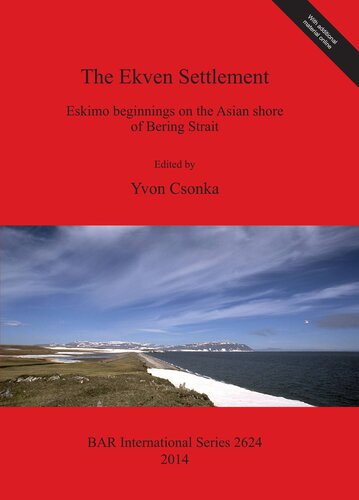

Most ebook files are in PDF format, so you can easily read them using various software such as Foxit Reader or directly on the Google Chrome browser.
Some ebook files are released by publishers in other formats such as .awz, .mobi, .epub, .fb2, etc. You may need to install specific software to read these formats on mobile/PC, such as Calibre.
Please read the tutorial at this link: https://ebookbell.com/faq
We offer FREE conversion to the popular formats you request; however, this may take some time. Therefore, right after payment, please email us, and we will try to provide the service as quickly as possible.
For some exceptional file formats or broken links (if any), please refrain from opening any disputes. Instead, email us first, and we will try to assist within a maximum of 6 hours.
EbookBell Team

4.0
96 reviewsThis report presents the results of the Swiss-sponsored contributions to an international research project at Ekven, a prehistoric settlement situated on the Siberian coast of the Bering Strait (Chukchi Peninsula, Russian Federation), in 1995-98. After Reto Blumer reported on the preliminary results of the first two seasons, the purpose here is to present an overview of the excavations conducted in the ensuing two years. This richly illustrated volume presents the state of knowledge about Western Arctic Eskimo prehistory and about Ekven in particular, discussing the cultural terminology and chronology; the location and topography of Ekven, the vegetation, fauna, climate, and recent settlement history by Yupik (called Eskimosi in Russian) and Chukchi; a detailed description and analysis of the cut through the settlement created by marine erosion, erosion which grinds away at the site and will make it eventually disappear; comparisons of paleoclimatic data from the Ekven area with those just across the Bering Strait in Alaska; analysis of pottery recovered during the excavation and preparation of the erosion cut for documentation. The entire publication is an important contribution regarding the infiltration, in the still poorly known prehistoric past, of the ancestors of present-day Yupik in the peninsula settled by, and named after, Chukchi people. This process had great significance for the Eskimo migrations from the Arctic regions of the Old, to those of the New World.